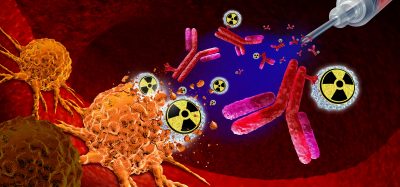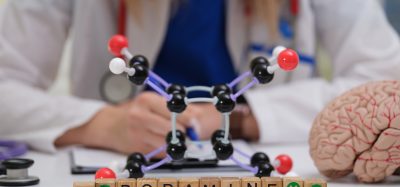Green tea and resveratrol could be the next step for Alzheimer’s disease research
Posted: 14 November 2022 | Izzy Wood (Drug Target Review) | No comments yet
US researchers, using a 3D neural tissue model, found that compounds from green tea and resveratrol could diminish Alzheimer’s amyloid plaques in lab tests, with no side effects.


Tufts University researchers, US, using a 3D model of living human brain cells, showed that the common herpes virus could induce plaques in the brain associated with Alzheimer’s disease.
Currently, Tufts scientists are working to understand what could slow the progression of the disease. They tested 21 different compounds in Alzheimer’s-afflicted neural cells in the lab, measuring the compounds’ effect on the growth of sticky beta amyloid plaques. These plaques develop in the brains of people with Alzheimer’s.
The researchers, published in the journal Free Radical Biology and Medicine, found that two common compounds: green tea catechins and resveratrol (found in red wine), reduced the formation of plaques in those neural cells.
Some of the 21 compounds tested reduced the disease progression by acting as anti-viral agents, slowing Alzheimer’s induced by the herpes virus.
However, finding a compound “that could diminish the plaques regardless of the virus component would be ideal, because that would show that regardless of the cause of Alzheimer’s, you might still see some kind of improvement,” said Dana Cairns, research associate in the Kaplan Lab in the School of Engineering and led the research.
Initially, the screening was done in simpler models and the compounds that had a positive effect were then tested in the three-dimensional (3D) neural tissue model.
The 3D tissue model was created using a non-reactive silk sponge seeded with human skin cells: through genetic reprogramming, the cells were converted into neural stem cell progenitors. These cells grow and populate the sponge, allowing for a 3D network formation of neurons similar to what you would see in the human brain.
In addition to the green tea compounds and resveratrol, they found curcumin from turmeric, the diabetic medication Metformin and a compound called citicoline prevented plaques from forming and did not have antiviral effects.
“We hoped to find compounds that would be harmless and show some level of efficacy,” Cairn commented. Green tea compounds and resveratrol met that standard. “In the case of these compounds that passed the screening, they had virtually no plaques visible after about a week.”
Green tea catechins are molecules in the tea leaves that have an antioxidant effect. They have been explored as a potential treatment for cancers and resveratrol has been tested for anti-ageing properties.
Cairns cautioned that seeing effects in the lab do not always translate to what you might see in a patient. Some compounds do not cross the blood-brain barrier, which would be essential in the case of Alzheimer’s and some have low bioavailability – meaning they are not readily absorbed into the body or bloodstream.
Yet, compounds like green tea catechins and resveratrol that show some efficacy and are known to be safe and easily accessible could be taken as a supplement or consumed as part of one’s diet.
Looking ahead, potential further research would be to take the beneficial properties of these compounds and “try to enhance them to make them more bioavailable or make them penetrate the blood-brain barrier a bit better,” Cairns concluded.
Related topics
3D printing, Drug Development, Drug Targets, Neurosciences, Targets
Related conditions
Alzheimer's disease (AD)
Related organisations
Tufts University
Related people
Dana Cairns








